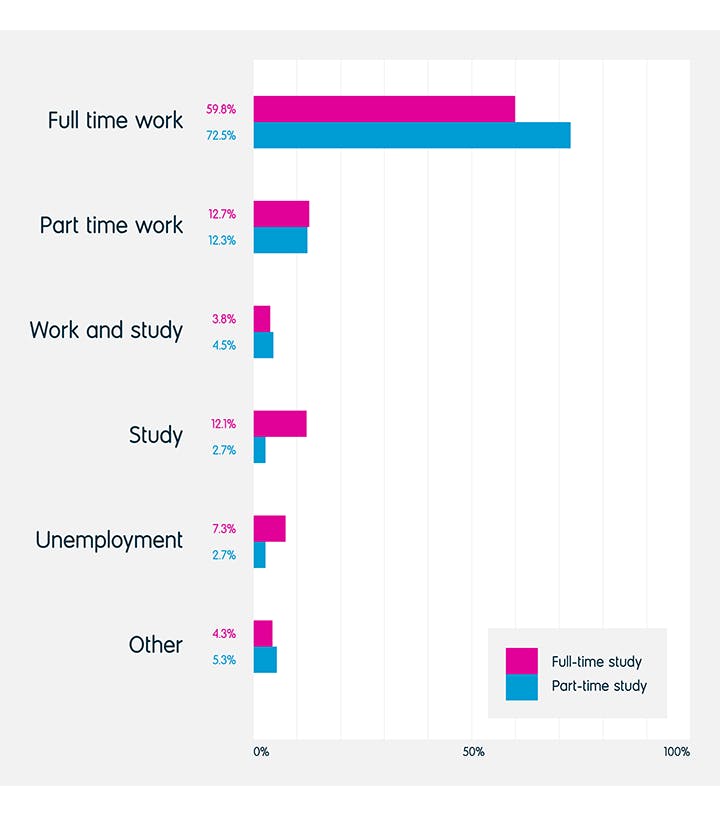Postgraduate market insights: November 2016
Although much of the attention given to university leavers goes to first degree graduates, the UK awards a significant number of Masters degrees annually. This group of graduates is less thoroughly examined than their first degree peers, and so less is generally known about their outcomes
In 2015, the UK awarded 51,690 Masters degrees to UK domiciled students, with psychology, management, academic education, business studies and law the five most popular subjects - each with more than 2,000 graduates. Although the most common image is of a young, recent first degree graduate going on to a further course of full-time study straight after their degree, in reality, over 40% of Masters graduates were over 30 on graduation, and over 40% studied part-time - much higher proportions than for first degrees. Only about a quarter of Masters are awarded to students under 25 who studied full time.
As a result, it's usually more informative to examine the part time and full time cohorts separately.

Outcomes of 2014/15 Masters graduates six months after graduation by mode of study.
The part-time cohort are usually older, have an employment history already, and are often taking Masters courses as part of professional development in subjects such as education, health and social work. Their outcomes are generally excellent. The full-time cohort do not always enjoy the same success, and notably the unemployment rate for full-time Masters graduates currently runs slightly above the unemployment rate for full time first degree graduates. This is for a variety of reasons - the UK has not got a developed labour market for general Masters qualifications in the way that we have a market for 'graduate jobs'. For first degrees, a large part of the available pool of roles consists of vacancies for first degrees that are more concerned with a suite of skills and attributes and less about the subject of study - data suggests that this could be the majority of all graduate jobs. But there is no generalised 'Masters jobs market' outside of some vocational niches - examples being surveying, planning and social work. This means that a Masters degree in many subjects does not often open up many new areas of the labour market that were theoretically inaccessible.
This does not mean that a Masters does not help employability. Firstly, it can often be an invaluable - and necessary - springboard into Doctoral study - a qualification that does open up new labour market opportunities in academic and private sector research and development. The other reason that the unemployment rate for full-time Masters graduates is higher than for their first degree counterparts is that Masters graduates are significantly less likely to be in low-skilled employment. And employers agree that a Masters candidate who is well-prepared, who understands that their qualification does not speak for itself and is able to articulate the value that their further study brings can be a real asset to organisations. Many organisations do not specifically target Masters graduates but value the ones they do recruit.
Although many Masters graduates find themselves competing in the same jobs market as their peers with first degree only, candidates who can really get the value of their postgraduate degree across to employers can find it provides an advantage in getting good quality employment.
Find out more
- Discover how you can advertise with Ģ����Ƶ��Ƭ.

